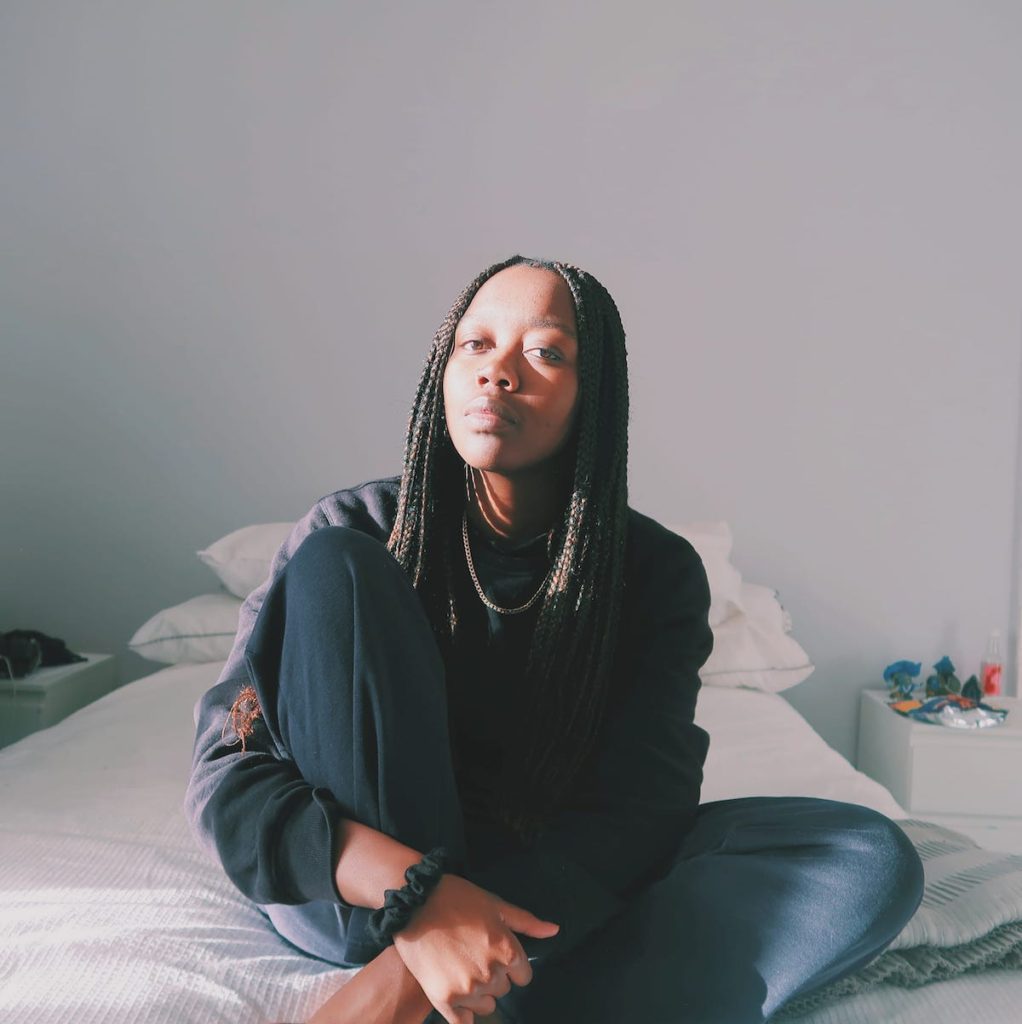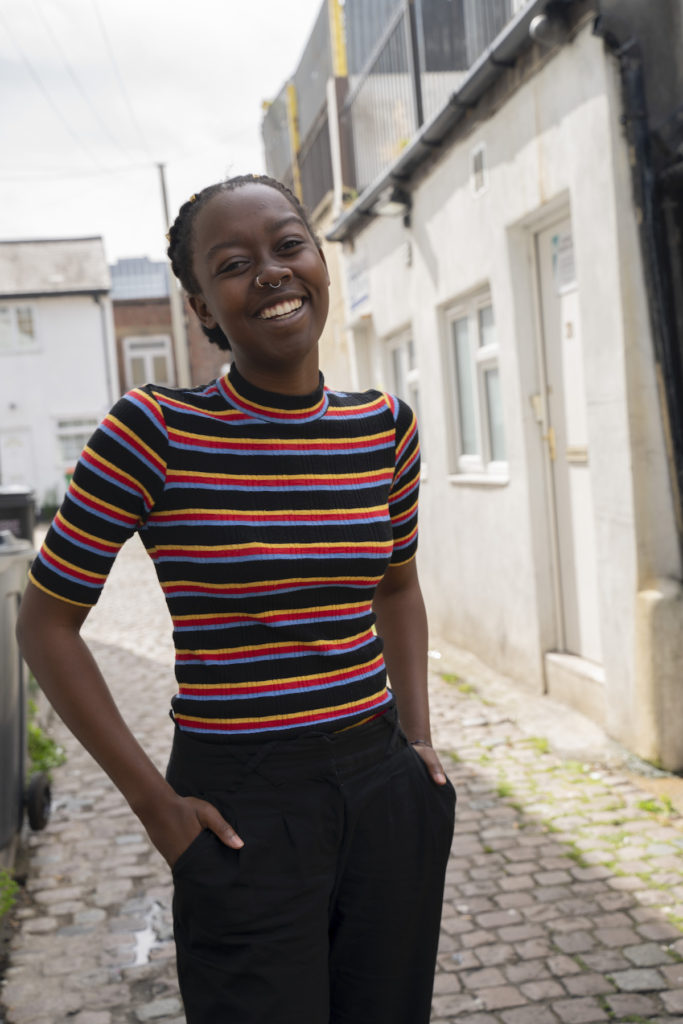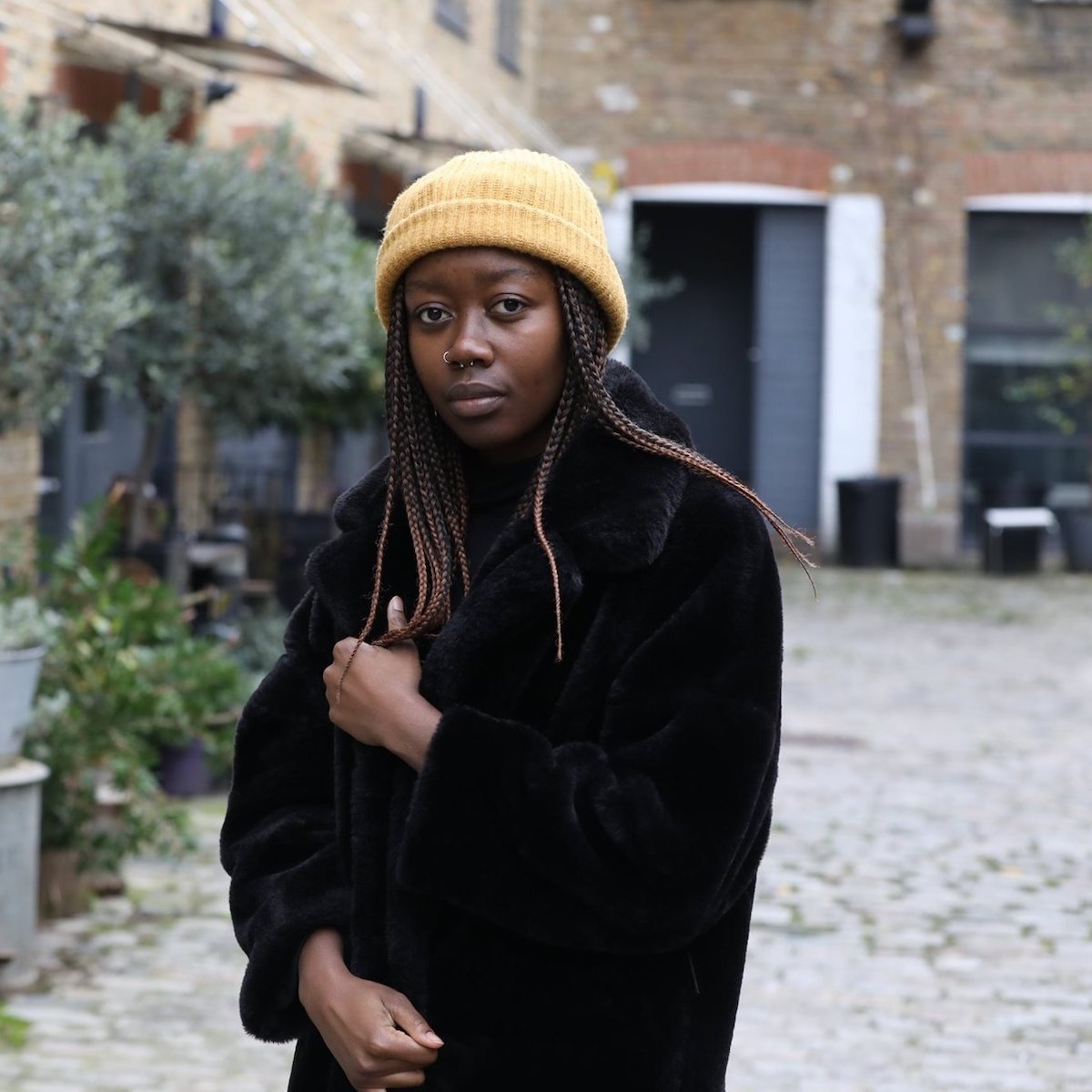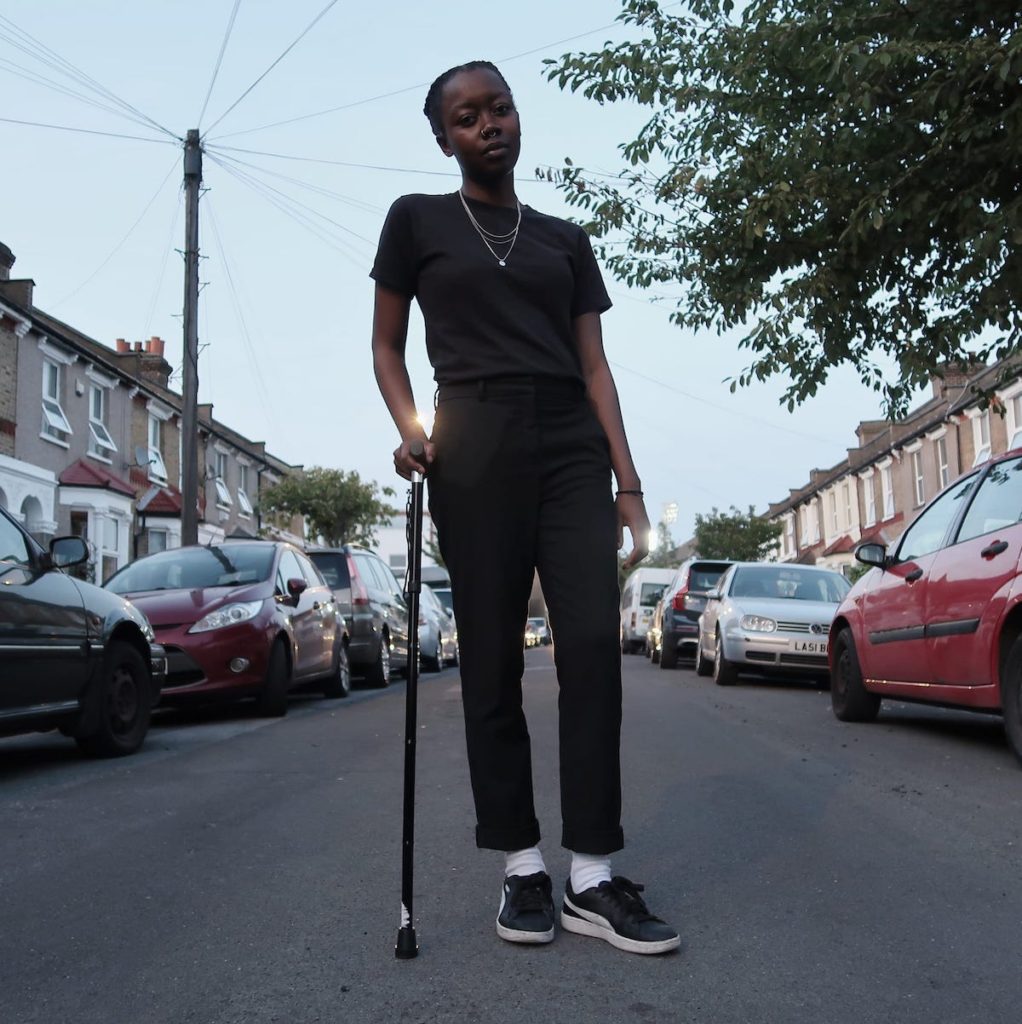Happy Monday, everyone! I’m back again with another chronic illness content creator interview, and this week I’m bloody delighted to have had the opportunity to interview one of my absolute favourite creators, Jameisha Prescod.
I’ve been a big fan of Jameisha’s videos for a long time now, and I think she has such a beautiful way of speaking about the experience of being chronically ill and opening up conversations on really important topics.
In today’s blog post, Jameisha will be sharing her experiences of balancing working with her health, making videos about chronic illness (and tips for making them with!), and a whole lot more.
I really loved this interview, and I hope you get a lot out of it!
Hi Jameisha! Can you tell me a little bit about yourself?
Hey, I’m Jameisha. I’m a filmmaker and video journalist based in London. I studied film production at university and love all things documentary.
I was diagnosed with Lupus in 2014, which put my original plans of being a cinematographer on hold.
Since then I set up You Look Okay To Me where I’m still able to create digital visual content when tackling topics that impact people living with long-term conditions.
What is your chronic illness and how does it impact you day-to-day?
The main chronic condition I deal with is Lupus (SLE). It’s an autoimmune disease that affects my whole body.
Lupus impacts me differently on a day-to-day basis. On low pain days, I deal with joint pain and tiredness. During a flare-up I struggle to get out of bed. I experience extreme fatigue, brain fog, severe joint pain and muscle aches.
Essentially, on a high pain day, I can’t do anything. Lupus can cause photosensitivity in some people, so in the summer, I sometimes develop mild skin lesions.
I also live with a condition called FAI (Femoroacetabular Impingement). It causes sharp and severe hip pain. It’s a strange condition because on some days, I can walk completely fine and on others, I need to use a walking stick. I’ve had two surgeries for it on my right hip, but it hasn’t been able to get rid of the pain completely.
As you know, I’m a huge fan of your videos. I think the way you break down issues relating to chronic illness and your experience of navigating the medical system is fantastic. Why did you decide to start creating videos online about chronic illness?
I decided to make videos about chronic illnesses because I was frustrated. I got diagnosed the same year I went to university. I had it in my head that I was going to be a cinematographer. Unfortunately, that role often requires you to be in pretty good shape. My peers were able to be on set for 16 hours everyday. This would have been impossible for me. It felt like my film prospects were over.
In the summer I got the idea to make visual content to talk about chronic illnesses. That way, I’m still able to be creative while educating people on what it’s like to live with a life-long disease.
Although I got the idea during the first year at uni, it wasn’t until 2018 that I started making videos consistently. I’m actually quite shy in real life, so it took a lot of courage to put myself in front of the camera and post videos to social media.
Can you talk me through the process of creating your videos and how you balance your time and energy making them?
The production process of making videos usually starts with the general idea of what I want to talk about. I’ll have a theme or a particular topic I’m interest in and then do some research about it.
I’ll then write a rough structure of how I want to talk about the topic on camera. After that I film on a small lightweight camera. I usually like to film in places in my house that are both physically and mentally comfortable for me.
After filming I upload all my clips to my computer and start editing. Once editing is done I export the video in different versions for different social media platforms.
Originally I used to transcribe all my clips manually, but this took up too much of my time and energy. I now use an automated service where you can upload the audio of your videos to a site called Trint. I’m now able to get it transcribed in about 10 minutes, as opposed to the hours it used to take me. At the end of the process I add the subtitles then upload the videos with the captions attached.
If I’m being honest, it can be hard to manage the video production process with a chronic illness while working full time. Sometimes, I’ll split the process over a couple of days to manage my energy levels better.
For bigger videos, I outsource editing to a friend of mine who amazingly does it for free.
What is your favourite video that you’ve created, and what has been the one that has had the best reaction? (and why?)
My favourite video I’ve made so far is when I describe my diagnosis process. I had actually made this video before, but this was in the early days of You Look Okay To Me when I had a lot less confidence.
In the newer video, it took more of an emotional approach and dealt with the fact that many chronic illness patients experience grief for their old life after their diagnosis.
The video that has had the best reaction is the “I Got Fired” video. I collaborated with my friend who’s an editor to make that video. I wanted to tell the story in the most engaging way while highlighting issues with living with a chronic illness while trying to maintain employment. It seems to be the video people relate to the most.

I’d love to chat a little bit about work, if that’s ok! Firstly, how do you find that your chronic illness impacts how you work?
The main way my chronic illness impacts my work is fatigue. While the pain I experience can be distracting, fatigue is the thing that stands in the way of me doing my job.
It stops me from being able to read properly and process my thoughts. Hell, I can barely sit up properly. When this happens it means I have to stay home from work. This can be frustrating especially when in the middle of a project.
It can also have an impact when I have to go on a shoot. This doesn’t happen very often, but there are occasions when I’m expected to film a video. I’ll often have to take a day off after the shoot because my body needs time to recover.
We’re both on the same disability scheme (hey!). Why did you decide to apply for Extend – and did you feel comfortable fully disclosing your chronic illness and accessibility needs from the beginning?
You are actually a big reason why I applied for Extend. I had been following your account for a while and saw a post you made about the scheme. I would have known about it had you not posted it…so massive thank you for that!
At first, I wasn’t sure if I should apply. I’m not a formally trained journalist. I studied film and had previously worked at a documentary company, but I had never worked in news before. Despite this, I kind of just said fuck it (I hope I’m allowed to swear here, if not please delete that lol). Natasha note: we love swearing!
I didn’t have high hopes that I’d get on the scheme but to my surprise I was able to get on it. It’s been an eye opening experience so far and I’ve learned a lot.
I felt comfortable disclosing my chronic illness at first. I usually find it easy writing this on a form. The part I felt uncomfortable about was disclosing my needs. I’ve never done that before. In all other jobs, I disclosed it and just has to suck it up. So having Extend ask me what would help me carry out my job was a new thing for me.
That being said, the person I had on the phone that helped me communicate me needs to my new boss was amazing. I didn’t have to actively ask for my needs since she did it on my behalf which made me feel so much better. I was so anxious to have to communicate that with my boss, so it was great to get that level of support.
What adjustments have you made in your job in order to make it work for you? Has that changed over time?
Work has allowed me to work from home one day a week. They also have flexibility for me to do this more often depending on how unwell I’m feeling.
They’ve also allowed flexibility with sick days which has taken a lot of pressure off.
Considering I got fired for that in my last job, it made me feel so much better knowing there was some security there.
I also got offered the taxi scheme to get to work, but I haven’t applied for it. I’d rather get home quicker than be in a car for that long (I get car sick very easily).
Despite this, my teams have offered a taxi home if I’ve become really unwell in the office.
Some of the best advice I’ve gotten is to stop feeling guilty when I take sick days and to stop pushing myself when I feel unwell. It’s taken some time, but I finally feel like I’m getting to a place where I’m putting my health before the work. This isn’t every single time, but I’ve definitely noticed a difference in myself from last year.
Do you feel as though there’s anything else that could be done to make your job more accessible for you?
Probably a laptop stand and a wireless keyboard. I just keep forgetting to ask for one lol.
I know that you’ve had some flareups over the last few months – how does this impact you emotionally when you have to stop working? And do you have any coping strategies, both practical at-work stuff and more personal, that you’ve found helpful when things get hard?
Flareups can be really hard when it comes to my emotional health. I still struggle with feelings of low self esteem because I’m not being ‘productive.’
What that’s meant is that I’ve tried to force myself to do other forms of work to make up for it. Whether that’s planning a video, or applying for funding etc. Just one thing that makes me feel like I’m doing something useful.
I’ve been trying to work through this. But you and I are very similar in the sense where are chronic illnesses haven’t stopped our ambitious, overachiever nature.
Part of me loves that I’m this way, but not so much that it makes me ill. Now, when I’m ill, I sometimes deactivate my social accounts and watch a good anime series. I almost need to get completely immersed in something so it takes my mind off of my low self esteem.
You’ve made a video in the past about how you were discriminated at work because of your health – can you talk a bit more about that?
Sure. I worked in a salad bar near Oxford Circus last year. I knew it wasn’t the best job for me, but I really needed money at the time. It seemed like a good idea at first. It was 5 days a week, but 4 hours a day, so in my mind it was manageable. In reality, it wasn’t for many reasons. It was a company that didn’t care about any of its workers.
I told them I had a chronic illness on three occasions. The application form, in the interview and on my first day of work. They said it should be fine and that I wasn’t expected to carry heavy stuff. It’s only when I had a flareup that I realised they didn’t mean what they said.
Company policy stated I needed to call in every morning to tell them that I was ill. I did that for 7 days. On the 8th day, I let them know I had a doctors note that I could send them. When I was ready to return to work I was told that I didn’t have a job there anymore because I didn’t bring in a note from the first day I was sick. This is obviously not how it works but they didn’t care.
What would you say overall is the biggest lesson that you’ve learned about working with chronic illness?
It’s a tricky one but I’d say to not take jobs that I physically can’t do. It’s hard saying that, especially when you’re in desperate need of money but at the end of the day it wasn’t worth it.
After getting fired I went on Universal Credit which was also a difficult experience, but it was better to do that than work in a job that was making me unwell with managers who didn’t care about me.

What advice would you give to someone with chronic illness who wants to create videos for YouTube or IGTV?
Try your best to work within your limits. Use equipment you can actually carry. Try space out the stages so that you’re not running yourself into the ground.
Also try to structure and plan what you want to say to your audience beforehand. This doesn’t mean you have to script everything, but it makes the video more focused and you’re less likely to ramble because you know the main points you need to cover.
What role has social media played for you personally when it comes to your chronic illness?
Social media has helped in so many ways. It’s been a creative outlet for me. It’s been a place where I feel less alone. It’s been a place that has aided me getting diagnosed because a bunch of people experiencing the same thing shared their story with me.
At the same time, it can also be exhausting. I am so grateful to the amazing people that get in touch with me. At the same time, I’ve found it difficult to keep up communicating with people who want to share their story with me and be heard while also being unwell myself.
It’s funny because in my case, I know this is a pressure I’m putting on myself. Whenever I apologise for being flaky, I’m met with a lot of support. I guess in order to deal with that pressure, I need to work on myself a nit more.
We’ve had many a lunchtime chat about sharing aspects of our lives with chronic illness online, and you talked about the pressure/nervousness you sometimes feel when you share about things like going clubbing. Could you share more about this?
So, my condition fluctuates, like many chronic conditions. I’m always in pain, but some days are a lot easier than others. Whenever I’m in a low pain day, I feel a little self conscious about how people see me. I have a fear that people think I’m lying or something.
When it comes to clubbing, I’ve actually only started going in the last couple years. Before diagnosis I wasn’t interested. I know it sounds a bit weird, but every few months or so I need a sense of release. I need to be able to dance and sing loudly with my friends.
I guess I feel so restrained by my condition, that a release like this is therapeutic almost. That being said, I usually suffer the next day. I feel self-conscious openly sharing this on Instagram. In my mind I can already hear the commented “how is she able to do that but she’s ill” or “she was talking about joint pain the other day, yet she’s clubbing now.”
Once again, no one has ever said this to me, but I’ve seen other people called out, so I have a strong fear it will happen to me as well.
You’ve relatively recently started using a cane on occasion. Can you talk a little bit about the process that went into you making a decision to use a mobility aid – and how it has impacted your life?
The decision to use a mobility aid is still an ongoing one. I didn’t think I could use a mobility aid because I didn’t have a doctor saying I needed to use one.
After my two surgeries, I had to use crutches. Once I got off of those, I realised I still needed some support while walking. I put off using a walking stick for the longest time because I struggled with the idea of making my disability visible.
There’s nothing wrong with a visible disability, but when you’ve been navigating as someone where it’s invisible, it’s a massive change. Added to that, I would be an occasional user of the stick, so there was also a fear that people thinking I was a fake.
I’ve since bought a lightweight, black, foldable walking stick that goes with annoying fashion decision to wear all black clothing. One night on my way home in East London I whipped it out and used it. It was dark and barely anyone could see me, but the relief I got made me realise I was denying myself the support I needed because of fear.
I still have that fear and there are days where I should have brought it with me, but like most things with chronic illness, I’m working on it.
What can we expect to see from you in the future?
More content about chronic illness in different mediums. I love exploring themes surrounding illness and health. This year, I want to work on larger scale projects. Photography, audio, short films. I want to make more art and tell more stories!
A huge thank you to Jameisha for taking the time to answer my questions! You can learn more about her work by visiting her on Instagram and her blog.
If you enjoy my content, the biggest way you can support me is by subscribing to my newsletter.



Jameisha, I am so glad that you are eager to try various jobs in filmography. I am very sympathetic that it can be very hard to work when you are suffering pain and managers not being too helpful and understanding about your chronic illness.